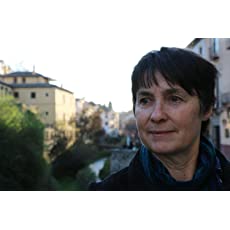
Paperback, 384 pgs.
I am an Amazon Affiliate
The Break-Up Book Club by Wendy Wax explores the unexpected friendships of a local book club in Atlanta at Between the Covers bookstore. This is an unusual book club where the members have a wide-range of backgrounds and experiences. Former tennis star Jazmine, empty-nester Judith, young assistant Erin, and bookstore assistant Sara are just four members of this eclectic book club that also has an EMT named Chaz, bookstore owner Annell, a budding fashion designer named Carlotta, and Meena, Judith’s best friend.
“It’s enough to make me wonder whether any of the things we think we know about each other are true.”
At the heart of the book is friendship, especially unexpected friendship, but this novel has a more solemn tone to it than some of Wax’s other, more light-hearted books. These women have experienced significant losses and hard times, and many of their secrets are kept close to the vest. While these women meet for book club to unwind and discuss books, the book club itself isn’t the main focus of the book, so much as the development of the characters. Jazmine is a single mother and a sports agent at a local boutique firm, but she’s haunted by the past, which keeps her closed off, ambitious, and focused on protecting her daughter. Judith is an older married woman whose husband seems even more distant, leaving her wondering what’s the next chapter for them until something tragic happens. Sara is the most blindsided of the four women when she discovers a heavy secret her husband has been hiding. Erin, on the other hand, is a young engaged woman who’s loss is for the best in many ways and allows her to blossom into a stronger version of herself.
“It’s strange how you can know people for so long yet only uncover slivers of who they really are and what they’ve been through.”
Wax explores the boundaries of friendship within this book club. Many readers have joined book clubs and have found friendship, fun, and wine, but would you call of the people in your book club a friend? Do you share personal experiences, talk about your heartaches, and delve deeper than the pages of the book to create lasting relationships outside of the book club? These are the questions that Wax explores in her novel, and while I love her lighter, beach reads, it is clear to me that these characters have depth — more so than her other characters — and that the sorrow in these pages is born of real experience.
My only complaint would be that the online dating mystery is wrapped up rather quickly and is too simplified, making it seem like an afterthought or something that was added to make it the book more relevant to today’s dating world. However, The Break-Up Book Club by Wendy Wax is an excellent read that explores friendship and how it can evolve over time as long as you are willing to open yourself up and be vulnerable. Definitely a read you won’t forget.
RATING: Quatrain
About the Author:
Wendy Wax, a former broadcaster, is the author of sixteen novels and two novellas, including My Ex–Best Friend’s Wedding, Best Beach Ever, One Good Thing, Sunshine Beach, A Week at the Lake, While We Were Watching Downton Abbey, The House on Mermaid Point, Ocean Beach, and Ten Beach Road. The mother of two grown sons, she has left the suburbs of Atlanta for an in-town high-rise, that is eerily similar to the fictional high-rise she created in her 2013 release, While We Were Watching Downton Abbey.








 About the Poet:
About the Poet:
 Source: Poet
Source: Poet
 About the Poet:
About the Poet:




